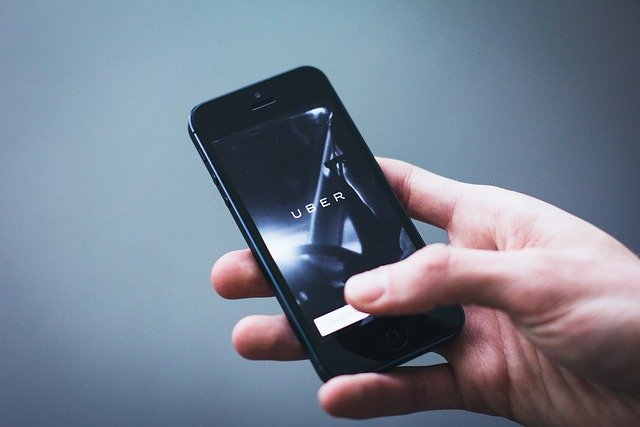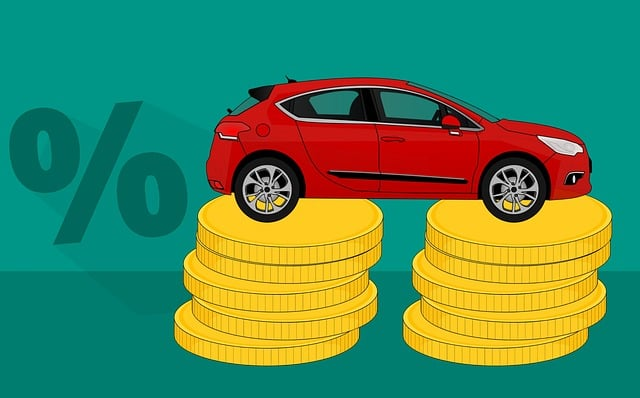Accident With Uber: Insurance and Legal Considerations

Rideshare services like Uber and Lyft have revolutionized transportation, but accidents involving their drivers can raise complex insurance and legal questions. This guide covers crucial aspects you need to know if you’re involved in a rideshare accident, whether as a driver, passenger, or other party.
Understanding Insurance Coverage for Rideshare Drivers

Personal Auto Insurance
Rideshare drivers typically use their vehicles for commercial purposes, which may violate the terms of their auto insurance policies. Most policies exclude coverage for accidents while the vehicle is used for rideshare or other commercial purposes.
Rideshare Company Insurance
Uber and Lyft provide insurance coverage for their drivers, but the extent of coverage depends on the driver’s status at the time of the accident.
Driver App On, Waiting for a Ride Request
- Uber: $50,000 in bodily injury per person, $100,000 in bodily injury per accident, and $25,000 in property damage liability
- Lyft: Contingent liability coverage up to $50,000 per person, $100,000 per accident, and $25,000 for property damage
En Route to Pick Up a Passenger or During a Trip
- Uber and Lyft: $1 million in third-party liability coverage, uninsured/underinsured motorist bodily injury coverage, and contingent comprehensive and collision coverage (up to the actual cash value of the vehicle) with a $2,500 deductible
Commercial Insurance for Rideshare Drivers
Some drivers purchase commercial insurance policies designed explicitly for rideshare activities. These policies can provide more comprehensive coverage than relying solely on personal auto or rideshare company’s insurance.
Determining Liability in a Rideshare Accident
Rideshare Driver’s Liability
Rideshare drivers are considered independent contractors, not employees of the rideshare companies. As such, they can be personally liable for accidents caused by their negligent actions while driving for a rideshare company.
Rideshare Company’s Liability
Rideshare companies like Uber and Lyft may be held vicariously liable for accidents caused by their drivers under certain circumstances, such as negligent hiring practices or inadequate background checks.
Other Drivers’ Liability
In some cases, other drivers involved in the accident may be held liable if their negligent actions contributed to it.
Filing a Claim After a Rideshare Accident

Passengers in a Rideshare Vehicle
Passengers in a rideshare vehicle can file a claim with the rideshare company’s insurance provider for injuries or damages sustained in an accident.
Other Drivers or Parties Involved
Other drivers or parties involved in a rideshare accident may need to file a claim with their insurance company first. If the rideshare driver is found at fault, the company’s insurance may cover the damages and injuries sustained by other parties.
Rideshare Drivers
Rideshare drivers can file a claim with the rideshare company’s insurance provider for accidents that occur while they are en route to pick up a passenger or during a ride. For accidents that occur while the driver’s app is on but are not en route or transporting a passenger, the driver’s auto insurance may be required to cover damages and injuries.
Related Terms: personal insurance company, uber or Lyft driver, liability insurance, personal auto policy, personal vehicle, vehicles involved, personal injury protection, rideshare accident claim
Legal Options After a Rideshare Accident
Personal Injury Lawsuits
Suppose you sustain injuries in a rideshare accident. In that case, you may be able to file a personal injury lawsuit against the negligent parties, such as the rideshare driver, other drivers involved, or the rideshare company itself.
Property Damage Lawsuits
If your vehicle or other property is damaged in a rideshare accident, you may be able to file a lawsuit to recover compensation for the damages.
Seeking Legal Representation
It is advisable to consult with an experienced personal injury attorney who specializes in rideshare accidents. Many law firms offer free case evaluations and consultations to help you understand your legal options and the potential for pursuing a claim or lawsuit.
FAQs: Rideshare Accidents and Insurance
1. What happens if I’m injured in an accident while riding as a ride-sharing vehicle passenger?
If you’re injured as a ride-sharing vehicle passenger, you can file a claim with the company’s insurance provider for your medical bills, lost wages, and other damages. You may also have the option to pursue a personal injury lawsuit against the negligent parties, such as the rideshare driver or other drivers involved in the accident.
2. Can I sue Uber or Lyft for an accident caused by one of their drivers?
In some cases, you may be able to sue Uber or Lyft for an accident caused by one of their drivers. Under certain circumstances, these rideshare companies can be vicariously liable for their drivers’ negligent actions. However, the specific circumstances and legal requirements vary depending on the state and the details of the accident.
3. What insurance coverage do rideshare drivers have while en route to pick up passengers?
When a rideshare driver is en route to pick up a passenger or during a trip, Uber and Lyft provide $1 million in third-party liability coverage, as well as uninsured/underinsured motorist bodily injury coverage and contingent comprehensive and collision coverage (up to the actual cash value of the vehicle) with a $2,500 deductible.
4. Can I use my auto insurance to cover damages from a rideshare accident?
Generally, personal auto insurance policies exclude coverage for accidents while the vehicle is being used for rideshare or other commercial purposes. However, some policies may provide limited coverage in specific situations, such as when the driver’s app is on. Still, they are not en route or transporting a passenger.
5. What should I do if I’m involved in a rideshare accident as a driver?
If you’re involved in a rideshare accident as a driver, follow these steps:
- Stop immediately and check for injuries
- Call emergency services if necessary
- Exchange insurance information with other parties involved
- Notify the rideshare company and follow their procedures for reporting the accident
- Document the scene with photos and notes
- Seek medical attention, even if you don’t feel injured
- Consult with a personal injury attorney to understand your legal options
Key Points and Benefits

- Understand the different insurance coverage levels provided by rideshare companies based on the driver’s status (app on, en route, or during a trip)
- Know your rights and legal options as a rideshare driver, passenger, or other party involved in an accident.
- Learn about liability considerations for rideshare drivers, companies, and other drivers.
- Gain insights into filing claims and seeking compensation for injuries, property damage, and other losses.
- Access FAQs addressing common concerns and scenarios related to rideshare accidents and insurance
Short Examples And Definitions
By understanding the insurance and legal landscape surrounding rideshare accidents, you can better protect your rights and interests if you ever become involved.
Insurance Claim: If you’re involved in a rideshare accident, you may need to file claims with the appropriate insurance policies to seek compensation for damages or injuries.
Own Insurance Policies: While rideshare drivers often use their vehicles, their insurance policies may exclude coverage for accidents that occur during commercial purposes.
Uber and Lyft Drivers: Uber and Lyft drivers are considered independent contractors, not employees of the rideshare companies.
Comprehensive Coverage: Comprehensive coverage provided by rideshare companies can cover damages to the driver’s vehicle from events other than collisions, such as theft, vandalism, or natural disasters.
Accident Occurs: The insurance coverage depends on the driver’s status when the accident occurs, such as having the driver’s app on or being en route to pick up a passenger.
Negligent Driver: If a negligent driver causes an accident, they may be liable for damages and injuries sustained by other parties involved.
Uber’s Insurance: Uber provides different levels of insurance coverage for its drivers, ranging from contingent liability coverage to $1 million in third-party liability coverage during an active trip.
Accident Involving: In an accident involving a rideshare driver, it’s crucial to determine if the accident is considered one of the covered accidents under the rideshare company’s insurance policy.
Covered Accidents: Covered accidents typically include incidents when the driver is en route to pick up a passenger or during an active trip.
Rideshare Company:
Under certain circumstances, rideshare companies such as Uber or Lyft may be held vicariously liable for accidents caused by their drivers.
Medical Bills: If you sustain injuries in a rideshare accident, you may be able to claim compensation for medical bills, lost wages, and other damages from the responsible party’s insurance.
Other Drivers: In some cases, other drivers involved in the accident may be held liable if their negligence contributed to the incident.
Accident Caused: Determining who or what caused the accident is crucial in assigning liability and seeking compensation.
Uber and Lyft: Both Uber and Lyft provide varying levels of insurance coverage for their drivers, depending on the driver’s status at the time of the accident.
Insurance Policy: Understanding the specifics of the rideshare company’s insurance policy is essential to determine the extent of coverage available.
Sue Uber: In certain circumstances, it may be possible to sue Uber (or Lyft) for an accident caused by one of their drivers if the company is found to be vicariously liable.
Parties Involved: All parties involved in a rideshare accident should exchange insurance information and document the scene to support potential claims or legal actions.
En Route: Rideshare drivers are typically covered by higher levels of insurance when they are en route to pick up a passenger or during an active trip.
File Claims: After a rideshare accident, it may be necessary to file claims with multiple insurance policies, including the rideshare company’s insurance, personal auto insurance, or the insurance of other drivers involved.
Insurance Policies: Navigating the various insurance policies and their coverage limitations can be complex in rideshare accident situations.
Law Firm:
Consulting with an experienced law firm specializing in rideshare accidents can help you understand your legal options and the potential for pursuing a claim or lawsuit.
Free Case Evaluation: Many law firms offer free case evaluations to assess the merits of your case and provide guidance on the best course of action.
Accidents Caused: Determining who or what caused the accident is crucial in assigning liability and seeking compensation from the responsible parties.
Driver’s App: The app’s status (on, en route, or during a trip) significantly determines the insurance coverage available.
Ride Request: When a driver is en route to pick up a passenger after accepting a ride request, they typically have higher insurance coverage limits from the rideshare company.
Other Driver: If another driver is found to be at fault for the accident, their insurance may be responsible for covering damages and injuries sustained by the rideshare driver or passengers.
Property Damage: In addition to personal injuries, rideshare accidents can damage vehicles or other property, for which compensation may be sought through insurance claims or legal action.
By understanding these key terms and concepts, you’ll be better equipped to navigate the complexities of insurance and legal considerations surrounding rideshare accidents.
CopyRetry
Related Terms: uber driver, car accident, lyft drivers, fault insurance













